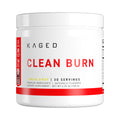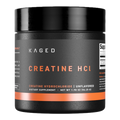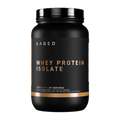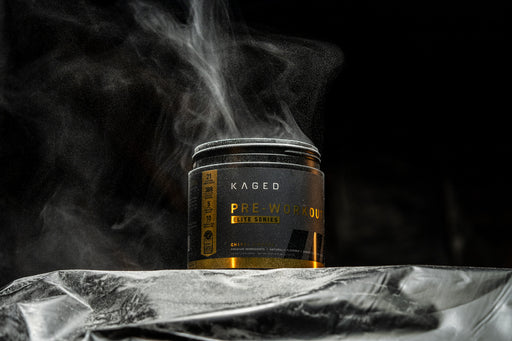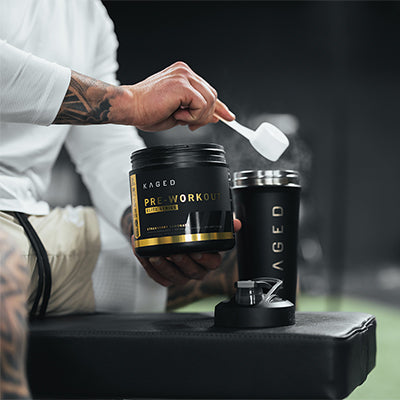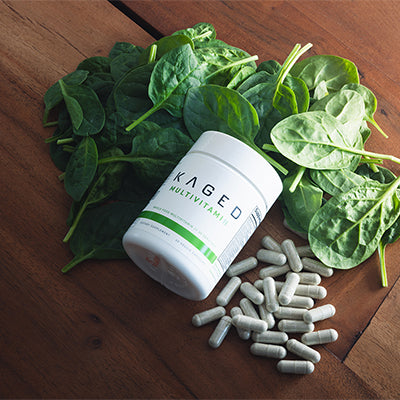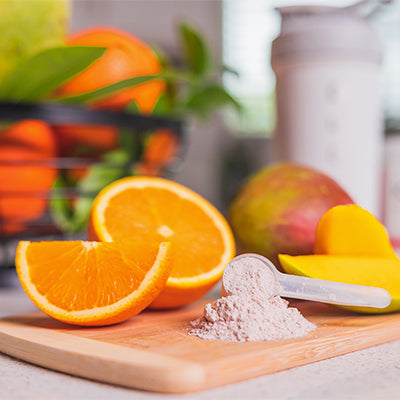Over the last decade, few research areas have grown as much as the realm of gut health and the gut microbiome.
The gut has been hailed as everything from “the second brain” to the linchpin for overall health. Of course, as is the case when the media grabs hold of a few rat studies, it can get blown out of proportion. There’s no doubt many charlatans are out there selling not well-studied probiotics and claiming it as a gut health miracle.
In today’s article, we wanted to cut through the hype and examine the research—specifically, the research linking gut health and athletic performance.
And we want to provide you with a few simple takeaways you can apply to your life.
The Gut Microbiome is Complex
There’s still a ton we don’t know about the gut microbiome. Most researchers examining this topic will tell you as much. Even when there is strong evidence for something related to gut health and athletic performance, we don’t fully understand the mechanism.
Again, this is because the gut is complex, interconnected, and not fully understood. Yet, when the research points to clear correlations, that’s somewhere to look closer.
In this article, we’ll focus on some general takeaways. As you’ll see, these action steps will be beneficial for more than just gut health and athletic performance.
Takeaway #1: Link Between Exercise and Gut Health
A 2022 review looked at dozens of other available research studies on the link between athletic performance and gut health.
One of the most prominent correlations is the link between exercise and gut health. Those who exercise tend to show improved gut health compared to those who are sedentary.
This is good news for anybody who’s already active.

And if you’re not training as much as you know you should be, it’s a reminder that the basics are the basics for a reason. When you take care of diet, exercise, and sleep, so many of the other puzzle pieces fall into place.
The Cloth Cuts Both Ways
Another key takeaway from the research overview is that it seems to be a bidirectional relationship. It seems that improving your gut health supports athletic performance, and exercise improves your gut health. This can create a true positive feedback loop.
Beware of Overtraining
That said, some research points to how overtraining can worsen your gut health. For example, a 2015 study performed a questionnaire on over 200 ultramarathon runners after running a 161-kilometer race and found that nearly all of them had some gastrointestinal symptoms.
However, as long as you’re not overtraining, this likely won’t be an issue. For serious athletes (like ultramarathoners), it’s worth looking into pre-race strategies to support your gut health as mentioned in the 2022 review.
Takeaway #2: Give Your Gut Good Fuel
Unsurprisingly, the other takeaway is that giving your gut better fuel leads to better outcomes, both in terms of gut health and athletic performance.
The base of this is to eat more fruits and vegetables, as they’re often good sources of fiber and prebiotics.
Eat More Prebiotic Fiber
When it comes to gut health, the focus is typically on probiotics. While there’s lots of research on probiotics, when it comes to results for gut health and athletic performance, it varies based on the strain, the context, and more.
The research has shown this context matters a lot, and shoving down random probiotics is often pointless at best.
A more general approach is to focus on eating more prebiotics.
Prebiotics, sometimes called prebiotic fiber, are a unique class of fibers that provide fuel for your gut microbiota.
That is, the beneficial bacteria in your gut use prebiotics as fuel, helping grow and strengthen your existing gut microbiome.
There are prebiotics abundant in many popular foods, like bananas, apples, and onions, legumes like beans and lentils, and leafy greens. So this starts by focusing on a diet with an ample variety of fruits and vegetables.
However, we know this isn’t always easy. 2015 CDC estimates stated that only 9% of American adults ate the recommended amount of vegetables. This is one of the reasons we created Kaged Organic Greens.
In Organic Greens, we include two unique forms of prebiotic fibers, Activaloe® and Actazin®, which come from aloe vera and kiwi, respectively. These fibers have been shown to provide digestion and gut support.*
Each scoop provides 2.5 servings of fruits and vegetables.*

SHOP GREENS
Eat More Fermented Foods
Another area gaining attention in both scientific literature and mainstream health discussions is the potential benefits of fermented foods for gut health and athletic performance.
A comprehensive review of human intervention studies examined the effects of fermented foods on gut microbiota composition and function. The review, published in the Journal of Nutrition in 2020, analyzed 19 studies and found evidence suggesting that regular consumption of fermented foods may support the gut microbiome.
That's because fermented foods like kimchi, kefir, yogurt, and sauerkraut contain beneficial bacteria.
While the research is promising, it's important to note that the studies reviewed showed considerable variability in targeted populations and methodologies. The authors emphasize the need for larger, long-term studies to confirm and expand upon these initial findings.
With that said, these are nutritious foods to add to your diet anyway. One of the easiest ways to incorporate this is to buy unflavored Greek yogurt and mix in a scoop of Kaged Protein Isolate Elite for added protein and flavor. Then, add half of a banana and your other favorite fruits to get some additional prebiotics and micronutrients. (For a real treat, add half a serving of peanut butter to this.)

The Basics Win Again
Of course, supplements can help when it comes to athletic performance and the gut. The right pre-workout can give you the extra motivation to push yourself in the gym. The right protein powder can give you a source of high-quality protein, and some studies show the quality of protein matters for gut health. The right greens drink can provide you with a daily source of high-quality prebiotics that provides gut support.*
However, they won’t do the work for you. So if you’re caught up in the buzz about gut health and how it’s the new miracle for everything, here’s your reminder to keep going with the basics.
Hit the gym, don’t neglect cardio, eat ample fruits and vegetables, and hit your protein target. Often, the rest will take care of itself.
*Disclaimer: These statements have not been evaluated by the FDA. This product is not intended to diagnose, treat, cure, or prevent any disease.

